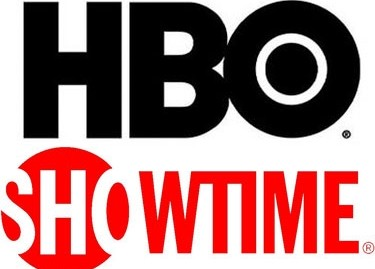What if networks were the sanctioning bodies? It was a concept explored on Sunday’s episode of thaboxingvoice podcast and presented an interesting perspective. On one hand, it would put networks like HBO and Showtime in complete control and force match ups that they deem less than stellar to go the way of the Dodo bird. The flaw being, who would regulate the regulator if they choose the path of least resistance for the stars of the network who could bring in viewership like a Julio Cesar Chavez Jr?
Let’s start at the beginning. The boxing world has four belts that are regarded as elite world titles, WBO, WBC, IBF and WBA. Each belt has its own problems. For example, WBC is notorious for allowing fighters they favor, typically of Mexican heritage, to have an easier go of things as well as the mess that surrounded Vanes Martirosyan’s number one contender spot. Vanes had to fight three number one contender fights and never received the Canelo Alvarez fight at the end of the day.
We can also look to the stripping of Super Middleweight Andre Ward. Ward, who may not have the most fans globally due to his style of fighting, is still regarded as the best in his weight class. Ward was stripped in the middle of this year after an injury pulled him out of a January fight with Kelly Pavlik, who then went on to retire.
Ward is a perfect example as HBO has appointed him to be the face of their network. Ward was brought on as a commentator as he rehabbed an injury and stayed in the ever present focus of boxing. The problem is that Ward is a tactical, a chess player and the fans don’t always want to see that sort of thing. Without a belt and a hard style to beat, it’s a high price to pay to fight Ward. It’s high risk / low reward, with little monetary gain to incentivize the fight, but the knowledge that you will be the uncrowned champ if you are able to win.
How would the structure look for such a governing body? For starters, we would have to see if the networks would charge a sanctioning fee, and for the purposes of this article we will naively say at least one network would do so. Going by this example, we would have an ESPN2 champ (regional), Box Azecta and Telemundo champ (Mexican champs on verge of crossing over), Box Nation (“best of Europe”), Showtime/CBS and HBO.
Here comes another problem. On Monday I will be at Golden Boy Live, a Fox Sports 1 card. These cards don’t typically hold major title bouts, but the series just recently began on the network. How would a CBS/Showtime title be able to happen on a Fox affiliate? Furthermore, would they want to do business with fighters who would not be in their stable? Could they ensure title fights down the road? Right now Fox Sports 1 seems to be investing in the future by getting young talented fighters early in their careers and betting on having a few of them turning to stars. This could lead either to syndication of old fights like Tuesday Nights Fights or the prestige that elevates the fight cards over time.
In the best case scenario we would have Floyd Mayweather vs. Canelo Alvarez every time and by that I mean fights that fans want to see. If the network held the title, we could possibly get fights that are the best for the ratings and more often than not , that is what is best for the fans, since we would be the one’s tuning in to give the high number. Imagine, Ruslan Provodnikov’s mandatory being say Lucas Matthysse or Brandon Rios. It potentially could be the type of pressure that could push the promotions to do business with one and another, and we could see the best fights with in each stable.
In a perfect world, it would allow for each belt as a stepping stone to one of the two big network titles and each would complement the other nicely, if egos could be put aside. It could help introduce young fighters and build them up for the next stage of their career. For this model to work, everyone would have to be realistic about their promotional ceiling. The little guys would have to be content to know that they would never make big money, but they would get by and the big dogs would have to find a way to adequately compensate the smaller budgeted shows for taking their fighters. It could work, but at the end of the day this feels more like a theory that seems wonderful, but the practice might not be applicable to human beings.




